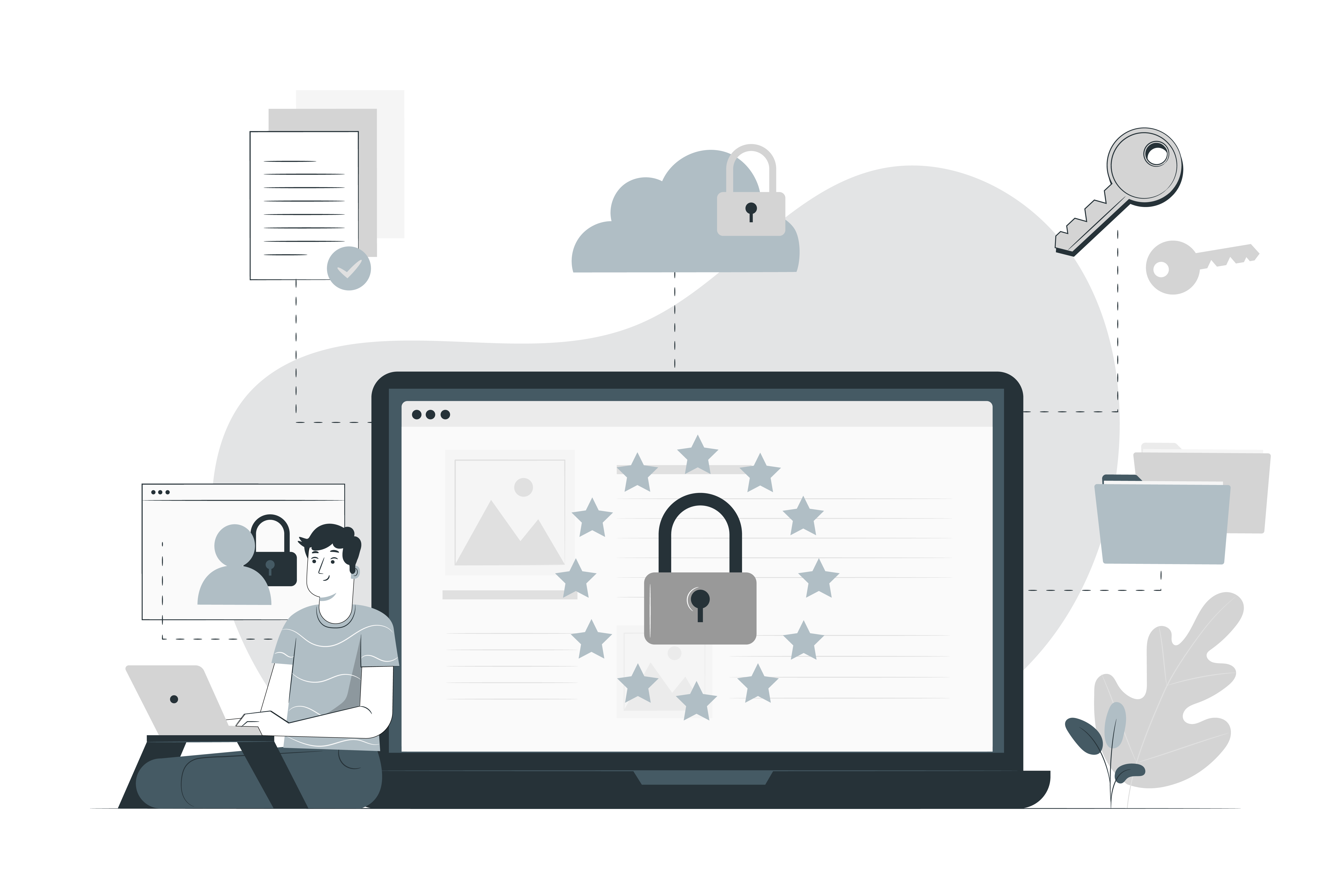Consider just recently, that you set up a new HTTP website. Your site is up and running, so everything must be alright… but you haven’t found the time to install any security plugins or firewall protection, and your password is 12345 just in case you forget it.
That’s wrong. On the contrary, your website can be hacked by harmful hackers and bots, costing you revenue and causing your site to go offline in minutes. If you take the time to implement a few website security best practices, you can avoid that fate.
But what does that mean? How can you prevent your site from being hacked? Whether you need answers now or in the future, we’ve got them for you. Read on for more information about web security.
The top 7 best practices for website security
Don’t worry if you’re worried about someone hacking your site – you can prevent that by taking the right steps. Take advantage of these seven expert security tips to protect your company’s website!
1. Use HTTPS
The most important step in securing a website is to use HTTPS. Websites commonly use the HTTP protocol, but HTTPS is a similar protocol that encrypts data on your website.
You will also attract and retain more traffic by using HTTPS in addition to providing a basic level of security. Google prioritizes HTTPS sites in its search results, so HTTPS helps you rank higher.
You will also encourage users to stay longer on your site and be more likely to share financial information if you have an online store.

2. Use strong passwords and two-factor authentication
Passwords are another important component of web security. A hacker guessing your password and gaining entry to your website is like leaving your house key out on the porch for someone to find, allowing them to walk right in.
You should create passwords that are hard to guess and consider changing them occasionally just to be safe. Two-factor authentication (2FA) is also an option. It requires you to verify your identity before logging in to your website, in addition to asking for a password.
3. Make sure you back up your website
It is unfortunate that even the best defenses sometimes fail to keep out hackers. It is not common, but it does happen. To prepare for such a disaster, you’ll need to backup your website. This will help you deal with the cleanup.
You can back up your site with a variety of programs. Hackers can end up destroying your website if they compromise your website. Once the hackers leave, you’ll always be able to restore your site with the click of a button once you constantly back up your site.
4. Scan regularly for malware
Hackers and bots can access your site if it is infected with malware. A variety of ways can be used to inject malware into your website, but once it’s there, it will do a lot of damage. Check your site frequently for viruses.
Platforms and plugins that can be used for scanning your website should be considered. As soon as the malware appears, you need to find a way to catch it immediately and destroy it before it can do any harm.
5. Conduct penetration tests
Penetration tests are another excellent way to find vulnerabilities by simulating attacks.
Consider your website like a castle: if anyone is trying to break into it, you need to look out for them. Also, look for weak spots on the castle walls. Patch up any holes in the wall where someone might be able to slip through.
It looks for vulnerable areas in your defenses – that’s what penetration testing is about. By simulating hackers and bots trying to access your site, it alerts you if it finds a way in so you can patch up that weakness.
Different online tools allow you to perform penetration tests automatically, or you can have a team of experts does it manually.
6. Install plugins to secure your website
Although web security plugins have already been mentioned on this list, they’re important enough to warrant their own section. Since you can only see so many security problems with the naked eye, background programs are a good way to ensure the security of your site.
Online, you can find a wide variety of web security plugins that do a variety of things. Some organizations watch for malware, others test for vulnerabilities, and others combat hackers and viruses.
It is recommended to have at least a few plugins on your website, whatever you choose. When it comes to protecting your website from attacks, these plugins will be your best friends.
7. Make a bounty program available
Lastly, a bounty program is a good idea when it comes to vulnerabilities on your site. Your website is publicly rewarded if someone can find security vulnerabilities.
If you launch a bounty program, bounty hunters will usually show up, more specifically freelance web security experts who will perform their own penetration testing and report any vulnerabilities they find to you.
Bounty hunters are a great way to catch any vulnerabilities that your team misses, and they have a high probability of revealing weaknesses since they are motivated to find them.
Do you need help implementing these web safety practices? Look no further than WebFX! We will help you implement all the above website security practices and more when you hire us for our web security services. As part of our website management services, you’ll receive a dedicated person to keep you informed.





 +91 8714 60 30 48
+91 8714 60 30 48
 + 971 44 92 87 30
+ 971 44 92 87 30




